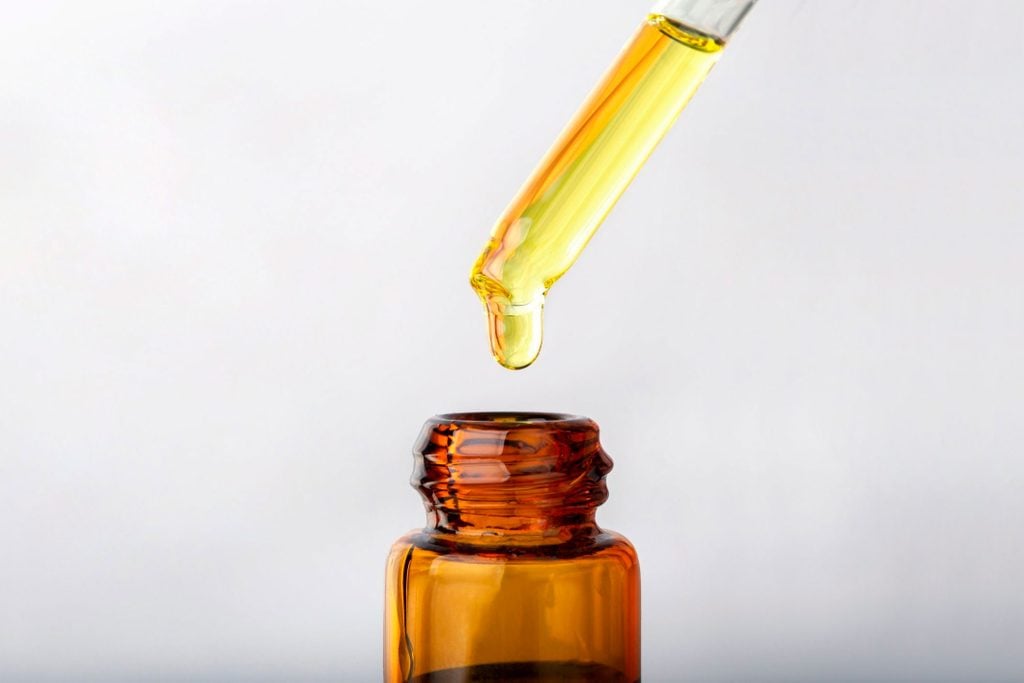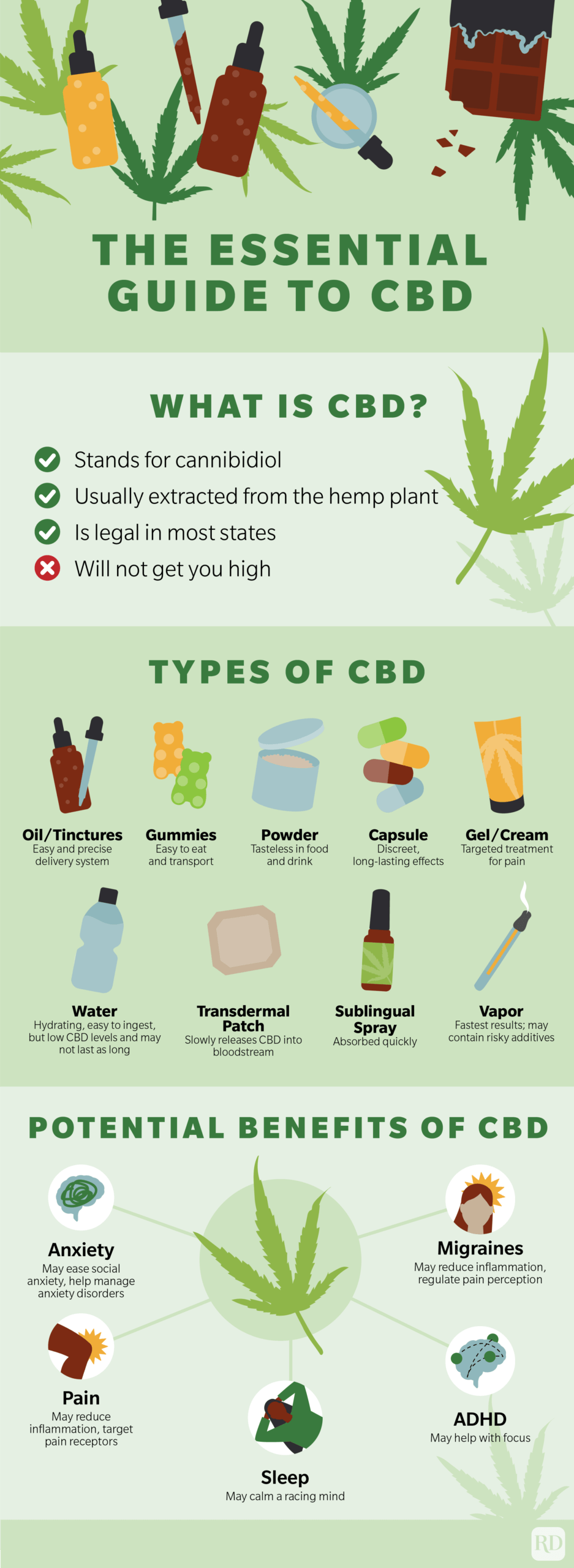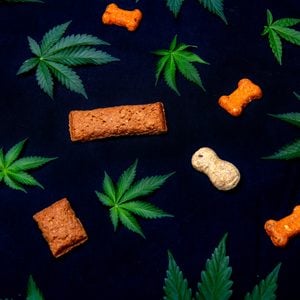What Is CBD Oil? Here’s What You Need to Know
Updated: Dec. 14, 2023

The use of CBD oil is popular in alternative medicine for ailments like anxiety and arthritis. Experts weigh in on whether it actually works.
What is CBD oil exactly?
You’ve probably heard about CBD and maybe even considered trying it for migraines or to help with anxiety or chronic pain. But what is it and why is it so popular?
CBD stands for cannabidiol. It is one of hundreds of different components, called cannabinoids, found in cannabis plants. Both hemp and marijuana are cannabis plants, known scientifically as Cannabis sativa. However, marijuana and hemp are different varieties of the plant and are quite different in the compounds they contain. (Humans naturally make their own version of cannabinoids too, called endocannabinoids.)
The best known of these plant-based cannabinoids are CBD and delta-9 tetrahydrocannabinol (THC), which targets and binds to certain receptors in the brain to give you a high. Hemp is a cannabis variant that is essentially THC-free.
So, does CBD get you high? No, and it’s not considered to be addictive. It seems to bind to multiple target sites, thereby affecting several body systems. Learn more about the differences between CBD vs THC here.
How do you use it?
Extracts of CBD—either from marijuana or hemp—are sold as an oil or in tinctures. You can also get CBD via a transdermal patch, capsule, sublingual spray, gel, cream, or vapor.
Some claim to contain pure CBD extract; others are either full-spectrum (CBD plus other compounds, including THC) or broad-spectrum (CBD and other compounds, but not THC).
CBD oil can be extracted from the flowers of hemp or marijuana plants using several methods. Extraction with supercritical carbon dioxide—a high-tech, expensive process in which the gas is turned into a powerful solvent under high pressure—results in a product that’s free from residues, unlike hydrocarbon extraction, which can leave butane, propane, and other potentially toxic compounds in the mix. Alcohol or oils can also be used to make CBD extracts. Don’t miss the key differences between CBD oil vs. hemp oil.
On the federal level, CBD products that come from hemp, which contain 0.3 percent or less THC, are legal. However, in some states, it’s still considered illegal, according to the National Conference of State Legislatures. As of November 2020, 15 states have either enacted or voted to enact marijuana legalization laws and 36 states have either enacted or voted to enact medical marijuana laws, according to a tally by NORML, a nonprofit marijuana public advocacy group.
Don’t let misinformation keep you from improving your well-being! Learn the science behind CBD with expert facts and first-hand accounts inside the all-new book, The Essential Guide to CBD.

What is CBD oil used for?
Some people hoping to add a little spring in their step (via better sleep, reducing anxiety, or easing muscle soreness) might drizzle a little oil into their smoothie or latte. They might also spot treat with a dab of CBD oil for pain in problematic areas. In the past several years, scientific published papers have researched how the compound might help with a spectrum of medical conditions, including anxiety, Alzheimer’s disease, addiction, inflammatory bowel disease, and fractures.
“Scientists have been studying other constituents in the marijuana plant besides THC, and there has been an emerging interest in the medical community for a while,” says Ryan McLaughlin, assistant professor of integrative physiology and neuroscience at Washington State University in Pullman. Here’s what doctors wish you knew about using CBD for anxiety.
The cost of CBD oil
CBD oil is not cheap. A vial containing 500 mg costs around $35. CBD extract—on its own or as part of a hemp extract, or even with a little THC, if you live in a marijuana-legal state—can be found in a variety of edibles, too, including honey and bitters.
“Some products are of little clinical value,” says Joanne Miller, a certified nutritionist at Swanson Health Center in Costa Mesa, California. “But some can be a total game-changer in people’s lives. There are many, many applications.”
Miller, whose clients include patients referred by physicians, uses CBD in a variety of forms that she has found effective. “Patches can be worn for pain or anxiety management. Capsules or concentrated drops can be taken orally for pain, inflammation, sleep, and anxiety. Balms and creams can be used on the hands and feet to manage arthritic pain. Vaping is another delivery method,” she says.
Her clients require therapeutic doses (generally speaking, 5 to 10 mg per dose), so she recommends brands that have shown results for her clients. Currently, she uses Mary’s Medicinals (available in marijuana-legal states) and Thorne. These other CBD oils for anxiety and stress also come expert-recommended.
How does CBD work?
No one’s really sure. “It’s astonishing that there’s still no real consensus on how CBD works,” says McLaughlin. “One thing we do know is that it doesn’t work through the same receptors as THC, and, in fact, seems to have the opposite effect.”
THC mainly binds to a certain type of receptor (known as CB1) in the brain. But with CBD, he says, “there seems to be a lot of complex targets”—which means CBD may act on multiple pathways throughout the body.
From anecdotal evidence in humans and from animal studies, CBD appears to affect the way we experience pain, inflammation, and anxiety. “Scientists have identified a number of receptors in the nervous system where CBD acts,” says Orrin Devinsky, MD, professor of neurology, neurosurgery, and psychiatry at NYU Langone. “It’s established that CBD has anti-inflammatory properties and can increase activity at some serotonin [the feel-good neurotransmitter] receptors.” Here’s what you should know about CBD oil for insomnia.
What the science says
When it comes to CBD oil, science does not have much to say as far as humans are concerned—at least not yet. The vast majority of high-quality studies have been on animals. Even the oil’s effect on pain—something that CBD oil is popularly used for—isn’t proven.
“The studies available are small or not well designed,” says Dr. Devinsky. “There’s a lot of religion out there, but not a lot of data.” Here’s how CBD helped one woman with arthritis.
Dr. Devinsky’s research, published in The New England Journal of Medicine, is beginning to provide that much-needed data in the field of epilepsy research.
In a 2018 landmark multinational randomized double-blind study for a treatment-resistant form of the condition, subjects taking an oral solution of 20 mg CBD per kilogram of body weight for 14 weeks, along with standard treatment, experienced a 42 percent reduction in seizures. Those taking 10 mg CBD per kilogram of body weight saw a 37 percent decrease; patients who got a placebo saw a 17 percent decrease. The mechanism hasn’t quite been worked out yet, Dr. Devinsky says, though there’s some evidence that a receptor known as GPR55 may be critical for the anti-seizure effect.
How to tell if CBD oil is in the product
Unfortunately, it’s actually hard to tell. Even though nearly three-quarters of all U.S. states allow (or will soon allow) marijuana for medicinal purposes, the Drug Enforcement Agency still views CBD as a banned substance and therefore doesn’t regulate it. “I can start a company, put oil in a jar, and sell it as CBD oil,” says McLaughlin—and no one has to vouch that what’s in there is for real. You have only the manufacturer’s word for it.
Why you should be wary
CBD products can’t always be trusted. A 2017 JAMA paper reported that almost 70 percent of all CBD products sold online do not contain the amount of CBD stated on the label. Of 84 products bought from 31 different companies, 42 percent contained a higher concentration of CBD oil than the label claimed, and 26 percent of the products contained less than the label claimed. The remainder of the products contained the labeled amount—about 31 percent.
Why there are so many fake CBD oil products
“There’s no oversight,” says Marcel Bonn-Miller, adjunct assistant professor of psychology in psychiatry at the University of Pennsylvania and author of the JAMA article. Beyond the label, he adds, “There’s no consistency. You know that every Hershey’s bar you buy and every Coke you buy will be exactly the same. But that’s not the case with the majority of CBD products. It’s not unexpected to see variability within a given brand.” This means that you may notice improvements the first time you buy and try a particular product, but none the next.
“There’s no way to know what you’re getting unless you bring the product yourself to a reputable lab and get it analyzed,” says Bonn-Miller.
Side effects of CBD oil
As Dr. Devinsky points out in his research, side effects, at least in therapeutic doses, can include fatigue, diarrhea, and weight loss, among others.
On its own, CBD is fairly safe; the side effects tend to come from the things it’s mixed with (which may or may not be on the label). “CBD is not the only ingredient in CBD extracts. They can have THC as well, sometimes in decent amounts,” says Bonn-Miller, “and that’s where it can get more complicated.”
THC-dominant edibles (like chocolates) can carry an even higher risk. “It can take one or two hours to feel any effect from ingestion as opposed to a few seconds from inhalation,” says Bonn-Miller. “This makes titration very difficult.” Add to that, an edible is made to taste good. So you can easily eat more than you should in the course of a few minutes—and end up feeling negative effects hours later.
The best way to try CBD oil
The Internet is loaded with options, but for a safe and reliable source, talk to your physician, advises McLaughlin. They may be able to introduce you to a reputable practitioner who can offer CBD oils and related therapies—or they may know of a colleague who can make a referral. If you’re trying to treat a medical condition, it’s better to avoid the guesswork and find guidance from a practitioner who’s had experience in—and is knowledgeable about—the most reliable CBD products and doses for your condition. Next, here are 13 facts you need to know about CBD.
Sources:
- Springer Link: “Cannabidiol as a Potential Treatment for Anxiety Disorders”
- Frontiers in Pharmacology: “In vivo Evidence for Therapeutic Properties of Cannabidiol (CBD) for Alzheimer’s Disease”
- SAGE Journals: “Cannabidiol as an Intervention for Addictive Behaviors: A Systematic Review of the Evidence”
- NCBI: “Therapeutic Use of Cannabis in Inflammatory Bowel Disease”
- ASBMR, “Cannabidiol, a Major Non‐Psychotropic Cannabis Constituent Enhances Fracture Healing and Stimulates Lysyl Hydroxylase Activity in Osteoblasts”
- The New England Journal of Medicine: “Effect of Cannabidiol on Drop Seizures in the Lennox–Gastaut Syndrome”
- JAMA: “Labeling Accuracy of Cannabidiol Extracts Sold Online”
